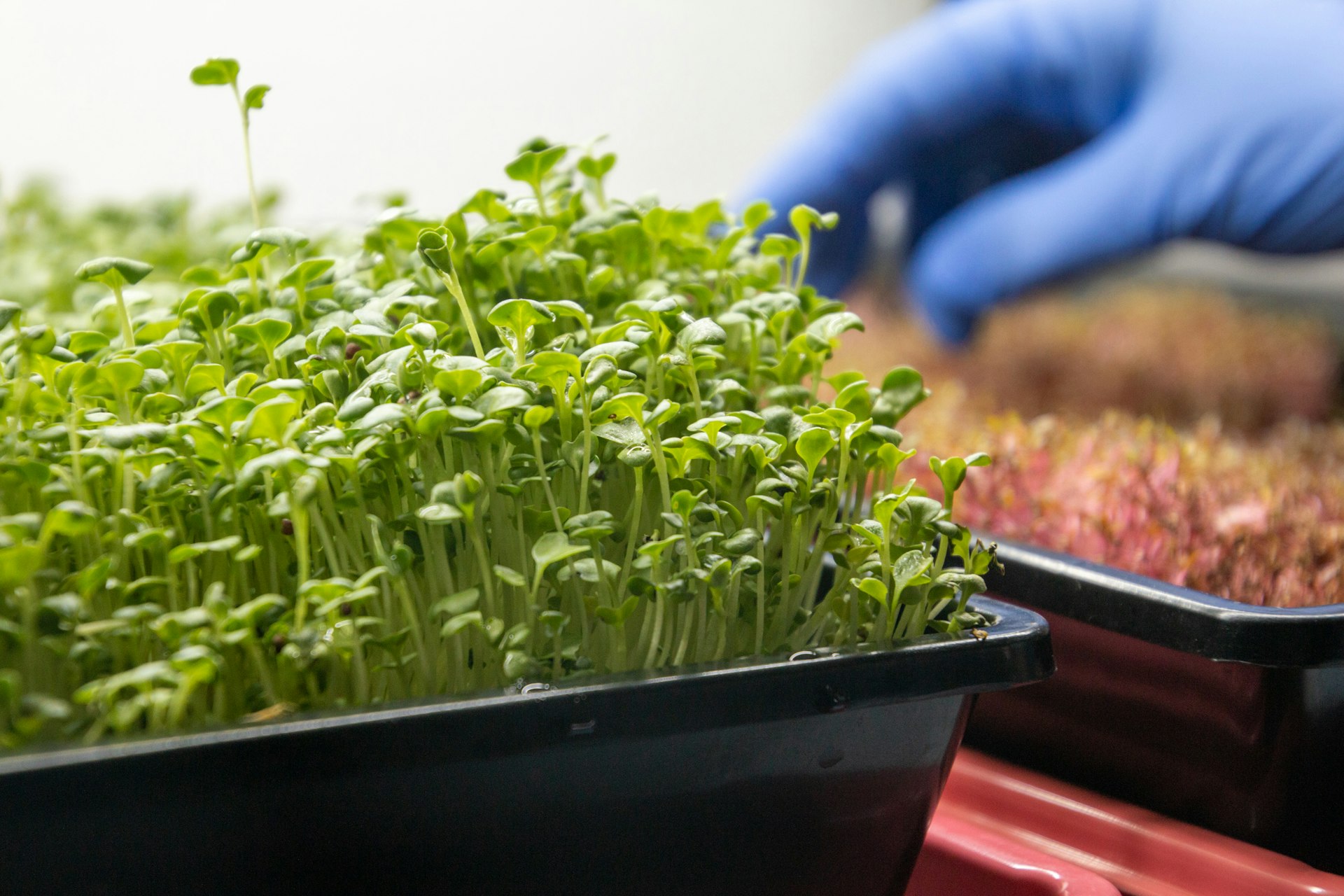Biotechnology’s Transformative Impact on the Future of Food Production

Photo by Artelle Creative on Unsplash
Introduction: The New Era of Food Production
Biotechnology is rapidly reshaping the landscape of food production. Driven by urgent global challenges-ranging from food security and climate change to consumer demand for healthier, more sustainable options-biotech innovations are paving the way for a future where food is produced with greater efficiency, reduced environmental impact, and enhanced nutritional value. By leveraging advances in genetics, microbiology, and digital technology, the food industry is set to revolutionize how ingredients and finished products are sourced, manufactured, and delivered [1] .
Key Biotechnological Innovations in Food Production
Protein Diversification and Alternative Sources: The development of alternative proteins-such as mycelium fermentation, microbial fermentation, and cellular agriculture-is at the forefront. These technologies allow for the creation of hyper-realistic meat substitutes and novel flavors and textures, dramatically expanding the options available to consumers and reducing reliance on conventional animal agriculture [1] . For example, companies are using fermentation to produce proteins and other ingredients from microbes, which not only lowers land use but also cuts emissions [4] .
Precision Fermentation: The industry is investing heavily in precision fermentation technologies, which use microbes to create specific proteins, enzymes, and bioactive compounds. This enables the production of ingredients tailored for health, improved flavor, texture, and enhanced nutritional profiles [3] . These methods are more scalable and climate-friendly, making them attractive for mass production and global distribution.
Carbon Utilization:
Innovative startups are transforming carbon dioxide into food ingredients using ancient microbes, offering a sustainable method that requires no farmland or traditional agricultural inputs. This approach not only reduces emissions but also redefines CO
2
as a resource for food production
[2]
.

Photo by ThisisEngineering on Unsplash
Synthetic Biology and Metabolic Engineering: By programming microorganisms to produce specific proteins or nutrients, synthetic biology allows the creation of ingredients that are more sustainable and health-focused. These advances support the development of products with tailored nutritional and functional benefits [5] .
Real-World Examples and Case Studies
Arkeon Biotechnologies:
This Austrian startup is a pioneer in carbon-to-protein conversion, using microbes to transform CO
2
into essential amino acids. Their technology exemplifies how biotech can offer climate-positive solutions while creating new food ingredients
[2]
.
Marine and Blue Biotech: Companies like MATÃS are extracting valuable compounds such as collagen from waste fish skins, turning byproducts into high-value resources and reducing food system waste [1] .
Fermented Novel Proteins: Fermentation-derived proteins are expected to account for up to 4% of total protein production by 2050, representing a $100-$150 billion annual market. Scaling this technology could dramatically reduce the environmental footprint of protein production [4] .
How to Engage with Biotech Food Innovations
For Consumers: The adoption of biotech foods is expected to accelerate, especially among younger generations who are more receptive to digital-first innovations. To access these products, consumers can:
- Look for alternative protein products (e.g., mycelium-based meats, fermented dairy alternatives) in specialty grocery stores and online retailers.
- Follow food technology companies and startups for updates on new products and launches.
- Monitor labels for ingredients produced using precision fermentation or synthetic biology.
For Food Producers and Businesses: Companies interested in biotech innovations can:
- Collaborate with open innovation platforms like EIT Food’s IP Garden to participate in cross-industry research and development [1] .
- Invest in fermentation and bioreactor technology to scale novel protein production [4] .
- Engage with regulatory bodies to understand evolving policies such as the EU Biotech Act, which can impact market readiness and compliance.
For Researchers and Innovators: Opportunities abound for those interested in advancing food biotechnology. You can:
- Join professional organizations such as the Institute of Food Technologists (IFT) for access to latest research and networking opportunities [3] .
- Apply for EU Food Biofutures programme grants or similar initiatives supporting food biotech innovation [1] .
- Collaborate with universities, startups, and established industry players to accelerate new product development.
Challenges and Solutions
Scaling Production and Cost Reduction: One of the main challenges is that production costs for novel proteins are currently much higher than traditional proteins, typically ranging from $2 to $15 per kilogram. Significant investment-estimated at $250 billion by 2050-is needed to expand capacity and achieve economies of scale [4] . Businesses can address this by:
- Partnering with multiple stakeholders to share research and infrastructure costs.
- Participating in government-supported programs to access funding and technical resources.
- Utilizing digital technologies for process optimization and cost efficiency.
Regulatory and Consumer Acceptance: Successful market adoption depends on clear regulatory frameworks and consumer trust. To navigate these challenges, stakeholders should:
- Engage in open dialogue with policymakers, industry leaders, and consumer groups.
- Promote transparency about production methods and ingredient sourcing.
- Focus on education and outreach to build awareness of biotech benefits and safety.
Alternative Approaches and Future Pathways
While fermentation and synthetic biology are leading the charge, other promising technologies include AI-driven ingredient design and molecular farming. These methods can further personalize nutrition and boost sustainability in food production [2] . For those interested in exploring these alternatives, consider:
- Researching startups focused on AI and data-driven food innovation.
- Connecting with agricultural technology incubators for hands-on experience.
- Staying informed about emerging trends through reputable industry publications and global food summits.
Conclusion: Shaping the Food System of Tomorrow
Biotechnology’s future in food production is bright and multifaceted, offering solutions for sustainability, nutrition, and economic growth. Whether you are a consumer, producer, or innovator, there are multiple pathways to engage with this dynamic sector. By leveraging verified resources, participating in industry forums, and staying informed, you can play an active role in the biotech-powered food revolution.
References
- [1] EIT Food (2025). Top 5 food trends to watch in 2025.
- [2] ICL Group (2024). Emerging Foodtech Trends and Innovations In 2025.
- [3] Institute of Food Technologists (2024). Outlook 2025: Technology Trends.
- [4] McKinsey & Company (2025). Scaling up bioreactor tech for the future of food.
- [5] Food Navigator (2024). Top food tech trends for 2025 revealed.
MORE FROM hotondeals.com













